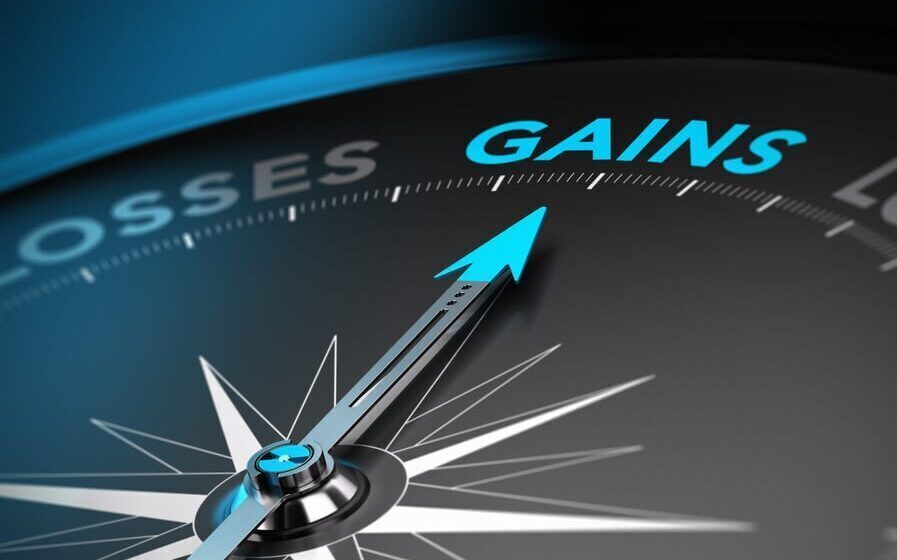If you’re worried the stock market is too expensive, well, I agree with you. This is why we’re going to discuss my two-step “12% Dividend Plan” today — so we can bank big yields without having to worry about a pullback.
Best of all, we can collect this income without having to sacrifice principal. In fact, our nest egg will generate some nice upside in addition to these big dividends.
But first, a reality check. A yield north of 12%? How the heck is that possible?
I realize it sounds like a pipe dream — especially with the S&P 500 trading at a nosebleed 31-times earnings and yielding a miserly 1.3% as I write this. But it absolutely can be done, and with minimal effort, too.
Let’s break down our two-step “12% Dividend Plan” starting with …
Step 1: Start With a Payout That’s Surging
Here’s something you don’t hear much about dividends these days — although current yields are low (as yields move in opposition to share prices) dividend growth is en fuego — and if you’re investing for the long haul, that’s what really matters.
And we’re in a golden age of dividend growth as profits — and payouts — bounce back from the 2020 mess: According to the latest figures from Janus Henderson, total dividends paid around the world will hit $2.4 trillion this year, just shy of 2019 levels. And payouts soared 26% from the same period a year ago.
In other words, while bargain stocks are thin on the ground, strong dividend-growth stocks are not. And nothing lights a fire under a company’s share price like a soaring dividend.
To see what I mean, look at UnitedHealth Group Inc. (NYSE: UNH) a health insurer I recommended in my Hidden Yields dividend-growth advisory in January 2020.
Since then, it’s handed Hidden Yields members a 45% total return. And when you overlay its price chart with its dividend — which has soared 34% in that short time — you can clearly see the dividend pulling the stock up with it, point for point:
UNH’s Dividend Yanks Its Stock Higher
In fact, this is nothing new for the company (and many other dividend growers, for that matter). Check out the stock’s dividend growth since 2011, well before we launched Hidden Yields. The pattern is unmistakable:
UNH’s Stock Walks Its “Dividend Staircase”
This is where that monster 12% yield I mentioned earlier comes in. Because while UNH yields just 1.4% today, folks who bought a decade ago are yielding an incredible 12% on their initial investment, thanks to that 792% payout growth.
Could history repeat? With UNH paying out a mere 33% of its last 12 months of free cash flow (FCF) as dividends today, well below my safety measure of 50%, it has plenty of room to bring in more raises — and inflate its share price as it does.
Step 2: Focus on “Relative Strength” Instead of Value
When you add an accelerating dividend to a stock showing what I call “relative strength,” you get something truly special indeed.
Relative strength is a simple concept that tells us that strong stocks tend to stay strong, and that strength — compared to the market as a whole or other companies in their sector — gives them a solid base from which to jump even higher.
Everybody loves betting on a long shot, but the trouble is, these underdogs simply don’t come in enough to pay. We like strong stocks, smart management and megatrends. But everybody wants those, so where do we find our edge?
In two places:
- We find underappreciated stocks in popular sectors. Think firms with a technology edge that are not — yet! — priced like go-go tech stocks.
- Or we look at an out-of-favor sector and find a stock that has been mislabeled.
Let’s swing back to UNH, because it’s a good example of point No. 1. It’s often thought of as a boring health insurance provider, but its high-tech edge increasingly drives its business.
In late 2019 (and still today), UNH was riding its Optum business (which it had the insight to start back in 2011) to strong sales and profits. Optum provides pharmacy benefits, runs clinics and supplies data analytics and other cutting-edge tech to streamline healthcare.
Back then, Optum accounted for around half of UnitedHealth’s profits, and that’s true today, too, based on the company’s second-quarter results. UnitedHealth’s shares had been on my watch list for months before I issued my buy call on them in the January 2020 Hidden Yields.
We pounced right after the stock started showing its relative strength: Check out how it bounced around near the same level as the market before lurching at the end of 2019 and cementing itself a new, higher base:
UNH Jumps — and Locks in a New Floor …
That was the signal we were waiting for. Fast-forward a little over a year and a half and we’re sitting on that 45% total return I showed you earlier, handily beating the S&P 500 — no mean feat for a “stodgy” insurer!
… Then Outruns the Market
This, by the way, doesn’t just apply to UNH: If you spot a stock that’s jumped and has a record of fast-rising dividends — and the soaring cash flow and low FCF payout ratio to keep those hikes coming — there’s a strong chance you’ve got another future 12% payer on your hands.
To learn more about generating monthly dividends as high as 8%, click here.
